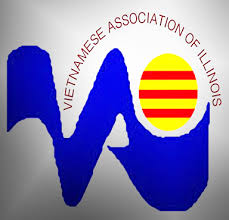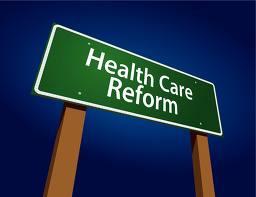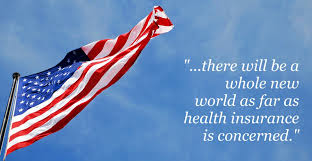In case you haven’t heard, DonorDreams blog is hosting for the second year in a row the Nonprofit Blog Carnival in the month of May. This year’s theme revolves around building loyalty among various non-profit stakeholder groups such as donors, employees, volunteers, etc. If you are a blogger and looking for the “Call for Submissions,” then click here. The carnival will be posted right here at DonorDreams blog on Wednesday, May 28, 2014. Stay tuned!
In the interest of building momentum, we’ve dedicated the entire month of blog posts to this topic. We’re specifically focusing on what a variety of non-profit organizations are doing (or are looking at doing) to build loyalty.
All-staff meeting results in health care discussion
Vietnamese Association of Illinois
 The idea of how to build loyalty has bubbled into all sorts of conversations with my non-profit friends this month. Just last week I met my old friend and current President & CEO of the Vietnamese Association of Illinois, Paul Luu, for a delicious lunch at Tank Noodle in Chicago’s Uptown neighborhood. After ordering hot tea and pho, we started talking about his one year anniversary as the top dog at his agency. Quickly, our discussion turned to the topic of loyalty.
The idea of how to build loyalty has bubbled into all sorts of conversations with my non-profit friends this month. Just last week I met my old friend and current President & CEO of the Vietnamese Association of Illinois, Paul Luu, for a delicious lunch at Tank Noodle in Chicago’s Uptown neighborhood. After ordering hot tea and pho, we started talking about his one year anniversary as the top dog at his agency. Quickly, our discussion turned to the topic of loyalty.
When the conversation turned to Paul’s staff, he got very excited and started talking about the quarterly meetings his agency hosts where every employee is invited and encouraged to attend. At these meetings, a wide variety of activities occur. The following are just a few examples of things that have ended up on quarterly all-staff meeting agendas:
- trainings
- updates from upper management and board members about the state of the agency
- Q&A with the President & CEO
Recently, it was brought to Paul’s attention at one of the quarterly all-staff meetings that employees were struggling with health insurance issues. These struggles were going to become more pronounced with the IRS poised to enforce the Individual Mandate of the Affordable Care Act (ACA).
 Understanding that it isn’t enough to just give the staff a forum, Paul and the board of directors listened and developed a plan of action to help employees with their healthcare challenges.
Understanding that it isn’t enough to just give the staff a forum, Paul and the board of directors listened and developed a plan of action to help employees with their healthcare challenges.
- ACA navigators attended future all-staff meetings to work with employees
- healthcare became a priority and repeatedly talked about in internal communication vehicles
- the agency found funding to help underwrite some of the costs associated with giving employees a healthcare stipend
Why did the agency go to great lengths to meet their staff halfway on the healthcare question? Paul explained it as follows:
“Our staff is talented and could go to work for any number of other social service non-profit agencies throughout the city. We understand that we are only as good as our staff and the services they provide our clients. While we don’t have endless financial resources, we owed it to our employees to engage in a discussion that was very important and collaborate with them on working through the problem until an acceptable solution was found.”
As I heard Paul talk about this situation — one with which he and the board are obviously very happy — I couldn’t help but think about what Peter Drucker once said:
“All organizations now say routinely, ‘People are our greatest asset.’ Yet few practice what they preach, let alone truly believe it. Most still believe, though perhaps not consciously, what nineteenth century employers believe: people need us more than we need them. But, in fact, organizations have to market membership as much as they market products and services — and perhaps more. They have to attract people, hold people, recognize and reward people, motivate people, and serve and satisfy people.”
I believe that Paul and the Vietnamese Association of Illinois just put a huge down payment down on something called employee loyalty because they gave their staff a forum; they listened; they collaborated; and they acted.
I think Peter Drucker, Frederrich Reichheld and all of the other loyalty thought leaders would be very proud of this non-profit organization.
=================================
If you want to learn more about what other non-profit organizations are doing to build loyalty among various stakeholder groups (e.g. donors, employees, volunteers, etc), then tune in here to DonorDreams blog every Tuesday and Thursday throughout the month of May. We will also publish the Nonprofit Blog Carnival on May 28, 2014 with a number of links to other non-profit bloggers who are talking about loyalty related themes.
Here’s to your health!
Erik Anderson
Founder & President, The Healthy Non-Profit LLC
www.thehealthynonprofit.com
erik@thehealthynonprofit.com
http://twitter.com/#!/eanderson847
http://www.facebook.com/eanderson847
http://www.linkedin.com/in/erikanderson847

 I am not a healthcare expert, and I promise not to play one today. However, the Affordable Care Act (aka Obamacare) has been mentioned in passing a handful of times in meetings I’ve had with non-profit board and staff members over the last few months. Of course, when things like this happen, it tweaks my curiosity and normally ends up here as a blog post. Today, I thought I’d quickly touch upon the quickly evolving topic of healthcare and the non-profit sector and how everyone needs to start paying attention.
I am not a healthcare expert, and I promise not to play one today. However, the Affordable Care Act (aka Obamacare) has been mentioned in passing a handful of times in meetings I’ve had with non-profit board and staff members over the last few months. Of course, when things like this happen, it tweaks my curiosity and normally ends up here as a blog post. Today, I thought I’d quickly touch upon the quickly evolving topic of healthcare and the non-profit sector and how everyone needs to start paying attention. Why?
Why?